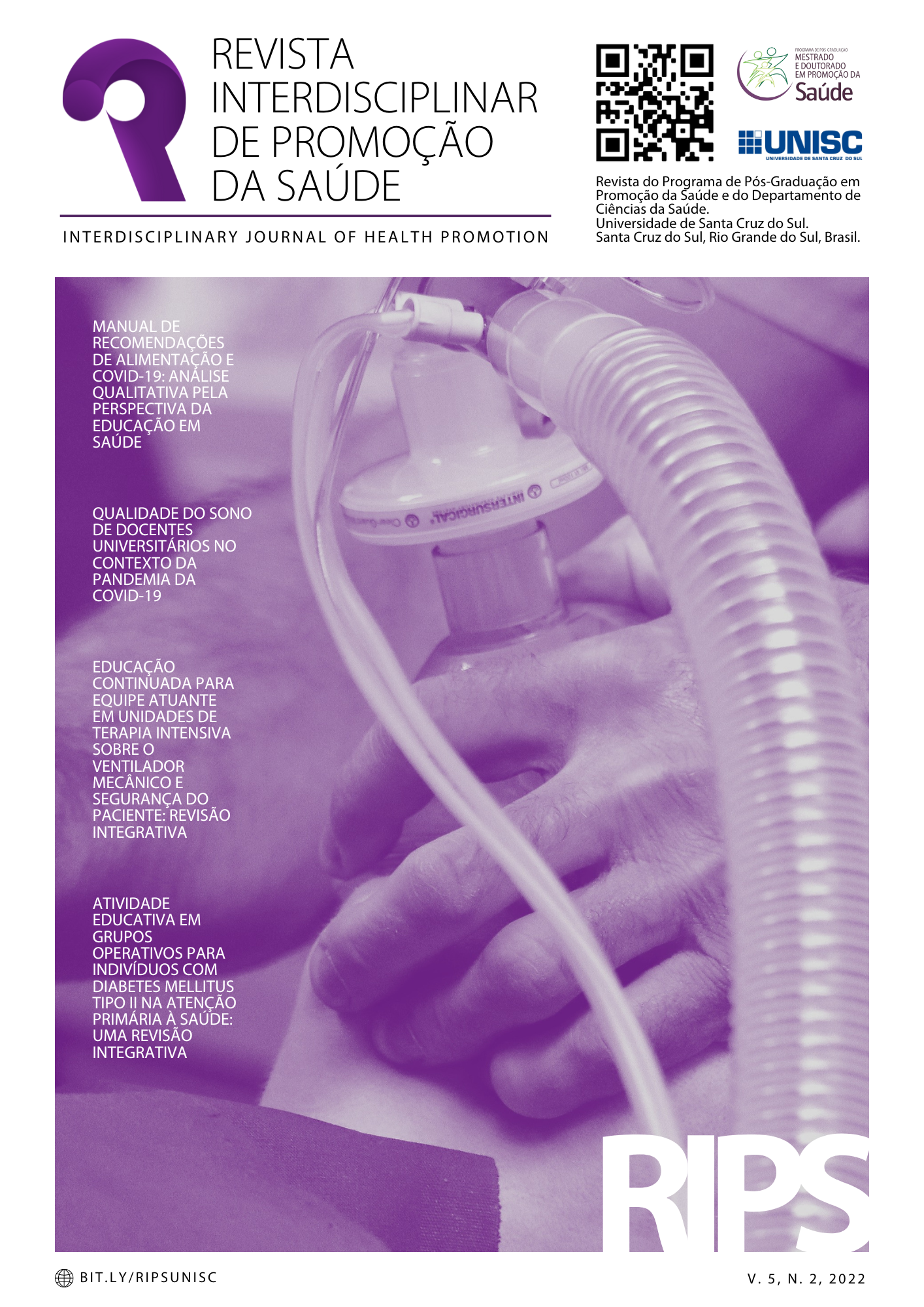Sleep quality of university teachers in the context of the Covid-19 pandemic
DOI:
https://doi.org/10.17058/rips.v5i2.17658Abstract
Introduction: the Covid-19 pandemic has changed the teaching dynamics in universities and in teaching life. Sleep is essential for the individual to have a productive waking period and a constant perception of well-being. Disorders arising from poor sleep quality include chronic sleepiness, mood disorders, mental illness and problems with the locomotor system. Objective: to evaluate the sleep quality of professors of the physiotherapy course at a university in the interior of Rio Grande do Sul – RS in the scenario of the Covid-19 pandemic. Method: prospective longitudinal study that evaluated university professors at a community higher education institution from august to december 2020. Sleep quality was assessed using the Pittsburgh Sleep Quality Index (PSQI) at the beginning and end of the first semester of 2021, when it was delivered virtually by the professor's institutional e-mail. Data were expressed as mean and standard deviation and absolute frequency. Results: of the total sample, 70 and 80% of teachers had poor sleep quality at the beginning and end of the semester, respectively, however, the perception of sleep quality was assessed in the questionnaire item that assesses how the individual classifies their sleep quality at the beginning and end of the semester, the response was predominantly "good" in 60% of the professors, with no "presence of sleep disorders" being identified in the professors. Conclusion: despite the necessary changes in the education system for the remote model and the greater imposition of work on teachers, the perception of their sleep quality was good in most of the evaluated individuals, and the presence of sleep disorders was not identified.
Downloads

Downloads
Published
How to Cite
Issue
Section
License
A submissão de originais para este periódico implica na transferência, pelos autores, dos direitos de publicação impressa e digital. Os direitos autorais para os artigos publicados são do autor, com direitos do periódico sobre a primeira publicação. Os autores somente poderão utilizar os mesmos resultados em outras publicações indicando claramente este periódico como o meio da publicação original. Em virtude de sermos um periódico de acesso aberto, permite-se o uso gratuito dos artigos em aplicações educacionais e científicas desde que citada a fonte conforme a licença CC-BY da Creative Commons.



